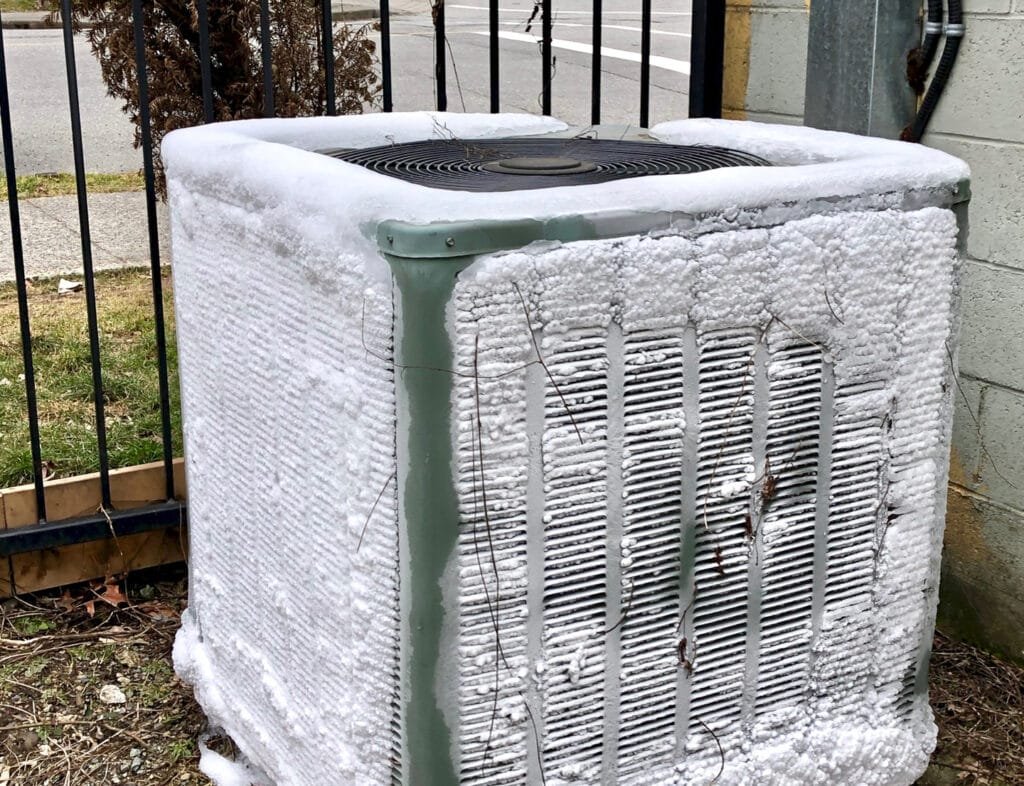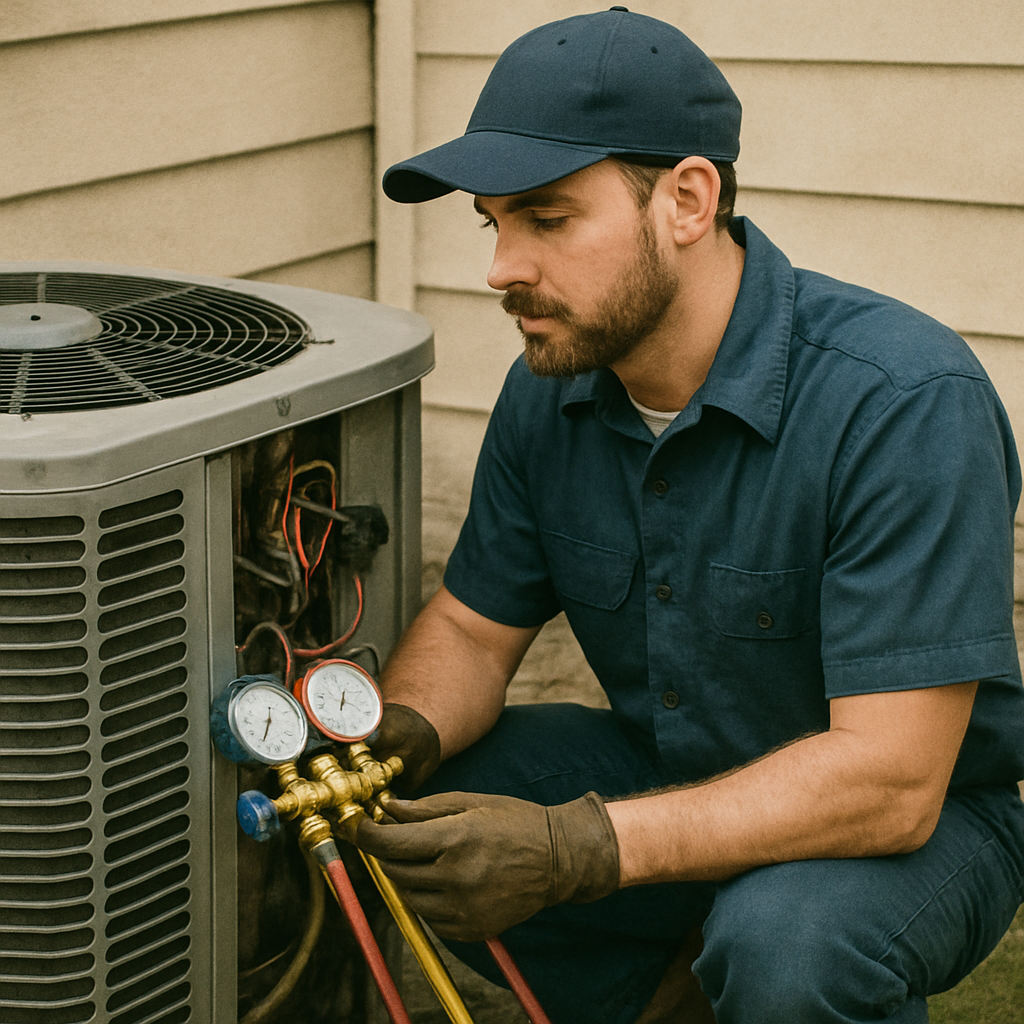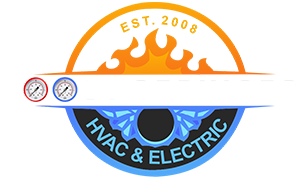As the summer heat in Pasadena rises, your air conditioning system becomes a crucial ally in maintaining comfort. However, when your outside AC unit begins to show signs of trouble, recognizing an AC outdoor unit problem and knowing when to call a professional can save you time, money, and discomfort. In this article, we will explore common issues that cause air conditioners to freeze up, and why timely professional intervention is key to ensuring reliable and efficient service.

A frozen AC unit can be perplexing, especially when you rely on it to combat the scorching heat. Understanding the underlying causes can help you decide when it’s time to seek professional assistance.
Table of Contents
Why Your AC Unit Freezes: Common Causes and When to Call a Professional
Causes of a Frozen AC Unit
- Restricted Airflow: One of the primary reasons for an AC unit freezing up is restricted airflow. This can result from clogged filters, blocked vents, or dirty coils. When airflow is restricted, the evaporator coil gets too cold, leading to ice buildup.
- Low Refrigerant Levels: Refrigerant is essential for heat exchange. If your unit has a refrigerant leak or the levels are too low, it can cause the evaporator coil to freeze.
- Thermostat Issues: A malfunctioning thermostat can cause your AC to run continuously, leading to overcooling and eventually freezing the unit.
- Faulty Blower Fan: If the blower fan is not working properly, it won’t move air over the evaporator coil efficiently, leading to freezing.
- Dirty Coils: Dirt and debris on the coils impede their ability to absorb heat, which can also lead to freezing.

Quick Fixes vs. Professional Help: Dealing with an AC Outdoor Unit Problem
While some might be tempted to address these issues themselves, it’s important to understand the limitations of DIY solutions.
When to Opt for Professional Intervention

Certain issues necessitate the expertise of a professional to ensure your air conditioning system is restored to optimal performance. Here’s when to call in the experts:
Persisting Freezing Issues
If you’ve tried basic troubleshooting like changing filters or ensuring vents are open, yet the unit continues to freeze, it’s time for a professional diagnosis. Persistent freezing can indicate deeper issues like refrigerant leaks, which require specialized tools and expertise to address safely.
Unusual Noises or Odors
When your AC unit starts making unusual noises or emitting strange odors, it’s not just a nuisance – it’s a sign something is amiss. These symptoms often precede more serious breakdowns and should be evaluated by a professional to prevent further damage.
Regular Maintenance Needs
Regular maintenance by a professional helps prevent freezing issues from arising in the first place. Scheduled tune-ups ensure components are clean, refrigerant levels are adequate, and the system operates efficiently.
Complex Repairs and Part Replacement
Tasks such as fixing refrigerant leaks, replacing blower motors, or addressing electrical issues require specialized skills and tools. Attempting these repairs without expertise can lead to costly damages or safety hazards.
Benefits of Professional AC Repair Services
Choosing professional services for your AC repair needs offers numerous advantages:
Expertise and Experience
HVAC professionals possess extensive training and experience, allowing them to quickly identify and rectify issues that might elude untrained eyes. This ensures that your air conditioning system is restored effectively and efficiently.
Long-Term Solutions
Professionals not only fix the immediate problem but also address underlying issues that could lead to future breakdowns. This proactive approach saves you from repeated repairs and extends the lifespan of your unit.
Enhanced Energy Efficiency
An optimally functioning AC unit consumes less energy, reducing your utility bills. Professionals ensure that your system operates at peak efficiency, which is both cost-effective and environmentally friendly.
Peace of Mind
With professional repair services, you gain peace of mind knowing that your air conditioning system is in capable hands. This reliability is particularly important in Pasadena’s hot climate, where a functioning AC is essential for comfort.
Choosing the Right HVAC Professional in Pasadena
When selecting an HVAC professional, consider the following factors to ensure you receive quality service:
Credentials and Certifications
Ensure the technician is licensed and certified to perform HVAC repairs. This guarantees they meet industry standards for safety and proficiency.
Reputation and Reviews
Check online reviews and ask for recommendations from friends or family. A reputable professional will have positive feedback from satisfied clients.
Transparent Pricing
Request detailed estimates before work begins to avoid unexpected costs. A trustworthy professional will provide transparent pricing and explain the scope of work involved.
Community Involvement
Supporting local businesses that engage with the community fosters trust and reliability. Choose a professional who demonstrates a commitment to community-oriented practices.
Conclusion
In Pasadena, where summer heat can be unforgiving, ensuring your air conditioning system operates efficiently is vital. While some minor issues can be managed with basic troubleshooting, persistent or complex problems require professional intervention. By choosing a skilled HVAC professional, you ensure reliable service, long-term solutions, and peace of mind. Remember, timely repairs not only restore comfort but also prevent costly breakdowns, making it a wise investment for any homeowner.
By understanding the causes of a frozen AC unit and recognizing when to call a professional, you can maintain a cool and comfortable environment throughout the hottest months. Prioritize quality service and expertise to keep your air conditioning system running smoothly and efficiently.
FAQ — AC Outdoor Unit Problem
What are the most common AC outdoor unit problems?
Typical issues include the condenser not starting, the fan not spinning, warm air from vents, unusual noises, dirty coils, refrigerant leaks, electrical faults (breaker trips, bad capacitor or contactor), and restricted airflow around the unit.
Why is my outdoor unit not turning on?
Common reasons are a tripped breaker, outdoor disconnect switched off, blown fuse, failed capacitor or contactor, thermostat issues, or a tripped float safety switch caused by a clogged condensate drain.
The outdoor fan is not spinning—what could be wrong?
Likely causes include a failed fan capacitor, a seized motor, a faulty contactor, or a tripped breaker. Do not try to push the blades by hand; call a technician to diagnose safely.
Why is my AC blowing warm air even though the outdoor unit runs?
Possible causes include low refrigerant from a leak, a dirty condenser coil, a failing compressor, or indoor airflow issues like a clogged filter or frozen evaporator coil.
What outdoor unit noises indicate a problem?
Warning sounds include grinding, screeching, buzzing, rattling, banging, or hissing. These may indicate motor or bearing failure, loose parts, electrical issues, or refrigerant problems.
Is ice on the outdoor unit or refrigerant lines normal?
No. Ice formation usually points to low refrigerant, dirty coils, or restricted airflow. Turn the system off to prevent compressor damage and schedule service after the ice melts.
Can dirty condenser coils cause outdoor unit problems?
Yes. Dirt blocks heat rejection, raising pressure and temperature, which reduces cooling performance and can trip safety switches or damage the compressor.
What should I check before calling a technician?
Run this quick checklist:
- Thermostat set to Cool and Fan Auto with a lower setpoint
- Indoor air filter clean and properly installed
- Outdoor breaker and disconnect in the On position
- At least 24 inches of clearance around the condenser
- Supply and return vents open and unobstructed
Why does my breaker trip when the outdoor unit runs?
Frequent trips can indicate shorted wiring, a failing motor, a weak capacitor, high head pressure from dirty coils, or a failing compressor. Do not repeatedly reset the breaker; call a professional.
What visible signs on the outdoor unit suggest a problem?
Look for heavy debris on the coil, bent fins, oil stains near refrigerant fittings, disconnected or scorched wires, a fan that wobbles, or the unit sitting out of level.
Could low refrigerant cause outdoor unit issues?
Yes. Low charge from a leak reduces cooling capacity and can cause icing and abnormal pressures, stressing the compressor and triggering safeties.
Is it safe to hose off the outdoor unit to clean it?
Gently rinsing the condenser coil with a garden hose is generally safe. Turn off power first, spray from the inside out if possible, avoid high pressure, and do not bend fins.
When should I shut the system off immediately?
Turn it off if you smell burning, see smoke, hear loud banging or screeching, notice heavy icing, or if the breaker trips repeatedly.
What maintenance helps prevent AC outdoor unit problems?
Schedule annual tune-ups, keep 24 inches of clearance, rinse coils periodically, straighten bent fins, change indoor filters every 30 to 60 days in summer, and ensure the unit is level with proper drainage.
When is repair no longer cost effective for outdoor unit issues?
Consider replacement if the system is 10 to 15 years old, uses obsolete refrigerant, needs frequent major repairs, or operates inefficiently compared to modern equipment.


555phslot is where the action is at! Love the variety of slot games they’ve got. Quick payouts too, which is awesome. Play now 555phslot.
BetPK22, haven’t heard of it… But seeing the logo now, can remember seeing the ads around. I might try it out, seems fine for a lazy Sunday. Maybe you’ll like it too?: betpk22
Just a heads up, wk777netlogin seems relatively straightforward for logging in. Process was hassle free. If you are looking for somewhere to login, try wk777netlogin.
Yo, ee88stratus is legit! Spent some time on it and I’m digging the vibe. Worth checking out! Find it here: ee88stratus
Hey there! Found km888b the other day. Easy to navigate and had a good time trying out different games. Payouts were smooth too. Could become my new go-to!
YO68: Top Online Slot & Casino Philippines – Secure YO68 Login, Easy Register & Download APK. Official Link Alternatif for 24/7 Gaming Access. Experience YO68, the Philippines’ top online slot & casino. Secure YO68 login, easy YO68 register & YO68 download APK. Use our official YO68 link alternatif for 24/7 access. Play the best YO68 slot games and win big today! visit: yo68